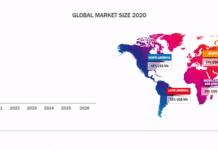Rick Rieder, BlackRock’s CIO for global fixed income, also stressed the strength of the labour market recovery, and that the reduction in bond-buying is already overdue.
“I’ve never seen in my career a stronger hiring environment that we have today,” he said.
“I think delta is something that the Fed has to have in the back of their mind. But from a policy point of view the discussion of whether the Fed should taper or not, I think they should have tapered a while ago,” Rieder said.
Minutes from the Fed’s July Federal Open Market Committee meeting signalled willingness to start tapering asset purchases before year-end.
“Most participants noted that, provided that the economy were to evolve broadly as they anticipated, they judged that it could be appropriate to start reducing the pace of asset purchases this year because they saw the Committee’s “substantial further progress” criterion as satisfied,” the minutes said.
The Jackson Hole symposium – now a one-day event – and arranged by the Federal Reserve Bank of Kansas City is titled Macroeconomic Policy in an Uneven Economy.
The conference has been going since 1978, but shot to fame in 1982 when then-Fed chairman Paul Volcker – a keen fly fisherman – was lured there by then Kansas Fed president Roger Guffey. The symposium has since become an annual stage for a keynote, market-moving message from the Fed.
The decision by Powell about what he puts in his speech can also be a guide for other central banks on how to handle the uncertainty of delta while still ensuring responsible monetary policy that allows central banks to keep their powder dry when another major liquidity emergency arises.
In Australia, where the hit to the economy from delta has been substantially bigger than in the US due to stop-start hard lockdowns, economists such as AMP’s Shane Oliver expect the Reserve Bank to rescind its tapering plan.
“Our assessment is that the significant setback is now occurring, and so we now anticipate that the RBA will decide to delay its decision to slow its bond-buying from $5 billion a week to $4 billion at its September meeting,” he said.
In the US, Oxford Economics reported that it’s so-called “Recovery Tracker” had stalled since early July and pointed to a deceleration in activity in early August amid a rising delta wave. However, economists there still expect a taper this year.
“We continue to expect a formal taper announcement in September with tapering possibly starting in late-2021,” it said.
Markets Policy Partners are a little more dovish, expecting that Powell will “reaffirm a patient approach to the taper of asset purchases” because the core of the FOMC is “humble” about its visibility on the near-term course of the pandemic and economic recovery.
Regardless of how strong Powell’s message is one way or the other, not everyone is planning to leave the virtual Jackson Hole symposium without catching a big one.
Bank of America’s Stefano Pascale and Francisco Blanch will be fishing for options to bet each way on exchange-traded funds – a strategy that has proven successful with previous Jackson Hole speeches from the Fed.
“ETFs that are more sensitive to macro drivers historically tended to outperform the move implied by options markets,” they say in a note to clients.
Tight lines everyone!
Credit: Source link






























